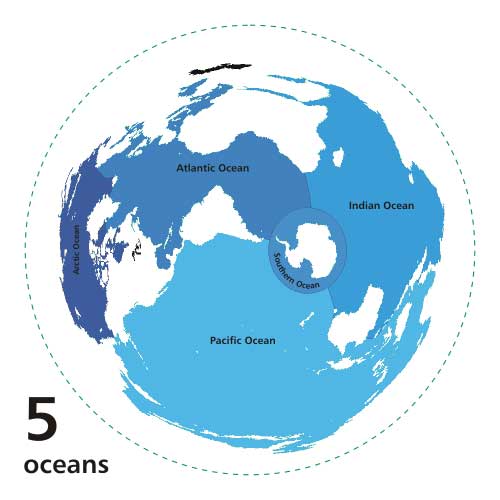Monday Feb 16, 2026
Monday Feb 16, 2026
Monday, 8 June 2015 00:00 - - {{hitsCtrl.values.hits}}

By Ramla Wahab-Salman
The theme of World Oceans Day 2015 is ‘Greening the Blue. Healthy Oceans, Healthy Planet.’ World Ocean Day was first proposed by the Government of Canada at the Earth Summit in Rio de Janeiro (1992).
A UN General Assembly Resolution passed in December 2008 established World Oceans Day as 8June each year. The United Nations highlights this day as one to celebrate the ocean while re-evaluating our ways of treating this living resource by creating perspective on the value of oceans that surround us.
The oceans constitute two-thirds of our world and remain the highways connecting our planet. To date, 82% of all nations border seas, rivers or oceans and nearly 60% of the world’s population lives within 60km of a coastline.Transport across Earth’s oceans account for a trillion dollar industry.Overyears and centuries methods of travel from rafts to sailing ships to steamships and liners have expanded the scale and intensity of shipping industries which to date link 35 million jobs to oceanic activity.
Sri Lanka is placed ona hotbed of oceanicpolitics at the mercy of geography.Its geographical position singles the island out as a strategic island the Indian Ocean Region. The island remains of importance in the Indo-Pacific Economic Corridor and the 21st Century Maritime Silk Road initiatives to strengthen maritime connectivity over 2015 and beyond.
By 2030, 85% of global energy consumption is expected to come from the region spanning from the Eastern Coast of Africa through the Indian Ocean and Central Pacific Ocean. Some of the key challenges to the ocean environment in the Indian Ocean Region are overfishing, marine pollution, tackling climate change and limited Indian Ocean regional co-operation to work toward regional maritime issues.
Carbon footprint and global shipping industry
Shipping is the most carbon efficient form of international transportation.Maritime shipping accounts for 2.7% of annual global greenhouse gas emissions. In an example cited by the World Shipping Council:the wine industry has found that a bottle of French wine served in a New York restaurant will have a lower carbon transportation footprint than a bottle of California wine served in the same restaurant.
Liner ships transport approximately 60% of the value of seaborne trade or more than $4 trillion worth of goods annually. Over 500 liner shipping companies ply between international trade routes. The Indian Ocean is embedded in a global economy and is increasing in global relevance from formerly being an area of relative neglect.
Apart from theenormous environmental advantagesthis line of transportation provides, a day such as World Oceans Day creates a necessary platform to address the murky waters that run below the waves of this lucrative industry.
Oceans and collective responsibility
The notion of the ocean being too big to fail us is fast changing.Alleviating the risk of ocean mismanagement and task of restoring healthy oceans is a collective.
The high seas refer to the open waters beyond the limits of territorial jurisdiction of any single nation state. The high seas belong to a concept of Global Commons which establish certain resource domains including the Atmosphere, Antarctica and Outer Space.
Conventions of the United Nations addressing maritime challenges such as the Law of the Sea have been ratified by Sri Lanka and her neighbours.The Indian Ocean contains forty percent of oil and gas reserves and a third of the world’s human population and endangered marine species. The concept of Global Commons provides certain freedoms to not only enhance economic gain but work toward collectiveocean rebuilding.
Island nations such as ours depend on maritime exchange and are vulnerable to direct effects of marine pollution and resource depletion. Citizens should take it upon themselves to restrict at every level the damage to the oceans which sustain and connect islands to the wider world. Support could and should be extended to government authorities to assist in the task of rebuilding healthy oceans.
Striving toward a sustainable relationship with the ocean environment should be a concern to all.